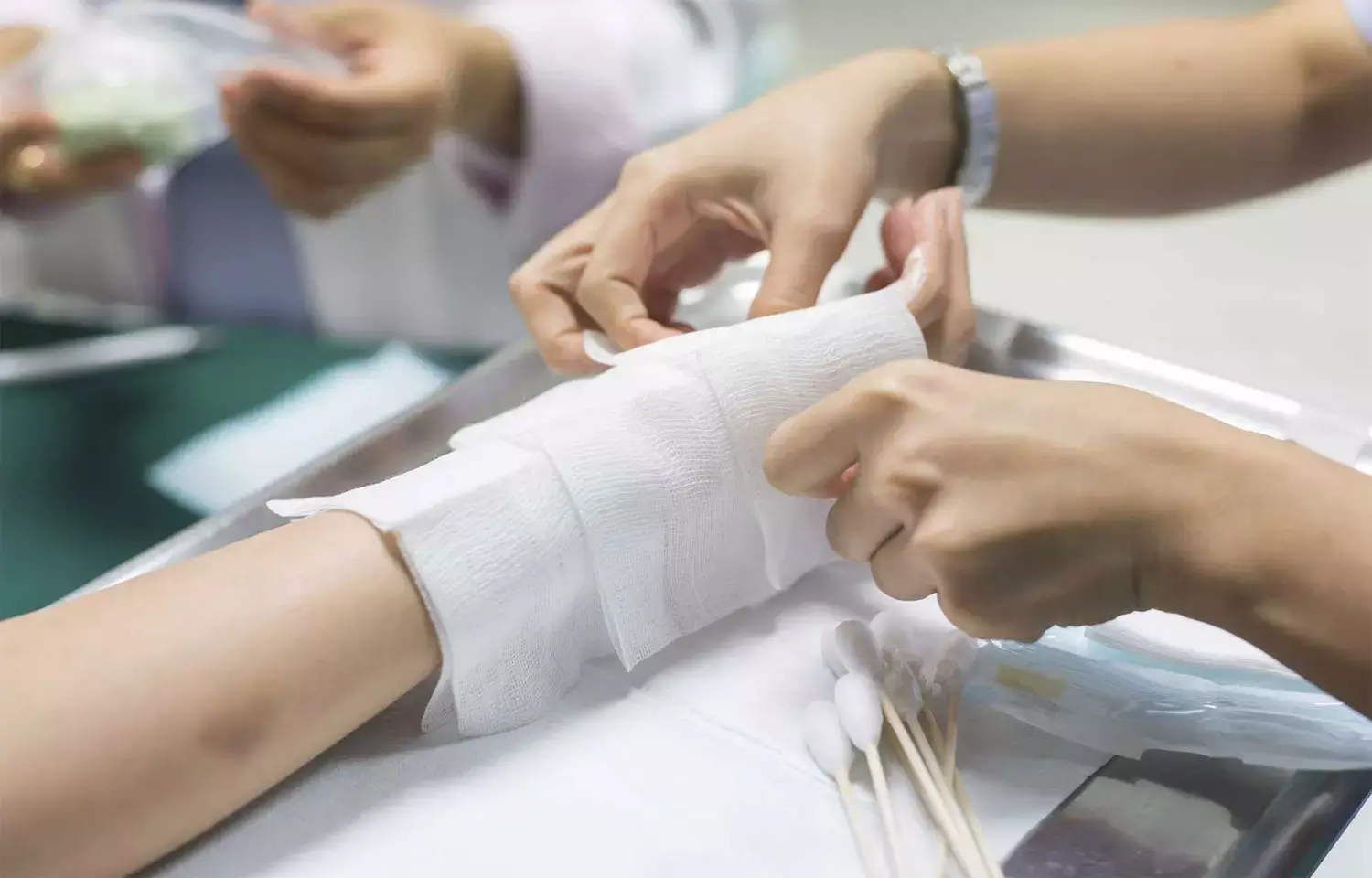- Home
- Medical news & Guidelines
- Anesthesiology
- Cardiology and CTVS
- Critical Care
- Dentistry
- Dermatology
- Diabetes and Endocrinology
- ENT
- Gastroenterology
- Medicine
- Nephrology
- Neurology
- Obstretics-Gynaecology
- Oncology
- Ophthalmology
- Orthopaedics
- Pediatrics-Neonatology
- Psychiatry
- Pulmonology
- Radiology
- Surgery
- Urology
- Laboratory Medicine
- Diet
- Nursing
- Paramedical
- Physiotherapy
- Health news
- Fact Check
- Bone Health Fact Check
- Brain Health Fact Check
- Cancer Related Fact Check
- Child Care Fact Check
- Dental and oral health fact check
- Diabetes and metabolic health fact check
- Diet and Nutrition Fact Check
- Eye and ENT Care Fact Check
- Fitness fact check
- Gut health fact check
- Heart health fact check
- Kidney health fact check
- Medical education fact check
- Men's health fact check
- Respiratory fact check
- Skin and hair care fact check
- Vaccine and Immunization fact check
- Women's health fact check
- AYUSH
- State News
- Andaman and Nicobar Islands
- Andhra Pradesh
- Arunachal Pradesh
- Assam
- Bihar
- Chandigarh
- Chattisgarh
- Dadra and Nagar Haveli
- Daman and Diu
- Delhi
- Goa
- Gujarat
- Haryana
- Himachal Pradesh
- Jammu & Kashmir
- Jharkhand
- Karnataka
- Kerala
- Ladakh
- Lakshadweep
- Madhya Pradesh
- Maharashtra
- Manipur
- Meghalaya
- Mizoram
- Nagaland
- Odisha
- Puducherry
- Punjab
- Rajasthan
- Sikkim
- Tamil Nadu
- Telangana
- Tripura
- Uttar Pradesh
- Uttrakhand
- West Bengal
- Medical Education
- Industry
Silicone Foam Dressings Significantly Reduce Pressure Injury Risk: Study

Researchers have discovered in a new study that silicone foam dressings are extremely effective at preventing pressure injury risk in sensitive areas like the sacrum and heels. The study concluded that the dressings significantly reduce the occurrence of both early-stage (stage I) and more advanced (stage II and higher) pressure injuries and are therefore a strong clinical recommendation for prevention. The study was published in the journal Frontiers in Medicine by Tingkui Fu. and colleagues.
This meta-analysis systematically assessed the effectiveness of silicone foam dressings specifically in preventing pressure injury in the sacral and heel areas. A thorough literature search was conducted in the top databases such as PubMed, Embase, ClinicalTrials.gov, the Cochrane Library, Web of Science, CNKI, Wanfang, and Weipu through May 10, 2025. This focused exclusively on randomized controlled trials (RCTs) to ensure high-quality evidence.
10 RCTs were included according to the inclusion criteria, and 4,817 patients were covered under them. The patients numbered 2,670 for the silicone foam dressings, and the rest were given the normal preventive treatment. RevMan 5.4 software was used to analyze the data with a focus on stage I and stage II (and higher) pressure injuries in the sacral and heel areas.
Key Findings
The meta-analysis identified a definite advantage of silicone foam dressings:
Stage I pressure injuries
• Sacral area: Relative risk (RR) = 0.18, 95% CI: 0.09–0.33, p < 0.001
• Heel area: RR = 0.30, 95% CI: 0.14–0.66, p = 0.003
Stage II and higher pressure injuries
• Sacral area: RR = 0.42, 95% CI: 0.31–0.58, p < 0.001
• Heel area: RR = 0.52, 95% CI: 0.27–0.99, p = 0.05
Silicone foam dressings were efficacious in their ability to reduce early and severe pressure injuries in the sacral and heel areas. Because of their preventive advantage, it is advised they be used clinically in high-risk patient populations. Further study on their economic and long-term effects is needed to better solidify implementation strategies within diverse healthcare environments.
Reference:
Fu, T., Wu, X., & Yu, B. (2025). Efficacy of silicone foam dressings in preventing pressure injuries in the sacral and heel areas of patients: a meta-analysis. Frontiers in Medicine, 12(1644290). https://doi.org/10.3389/fmed.2025.1644290
Dr Riya Dave has completed dentistry from Gujarat University in 2022. She is a dentist and accomplished medical and scientific writer known for her commitment to bridging the gap between clinical expertise and accessible healthcare information. She has been actively involved in writing blogs related to health and wellness.
Dr Kamal Kant Kohli-MBBS, DTCD- a chest specialist with more than 30 years of practice and a flair for writing clinical articles, Dr Kamal Kant Kohli joined Medical Dialogues as a Chief Editor of Medical News. Besides writing articles, as an editor, he proofreads and verifies all the medical content published on Medical Dialogues including those coming from journals, studies,medical conferences,guidelines etc. Email: drkohli@medicaldialogues.in. Contact no. 011-43720751


